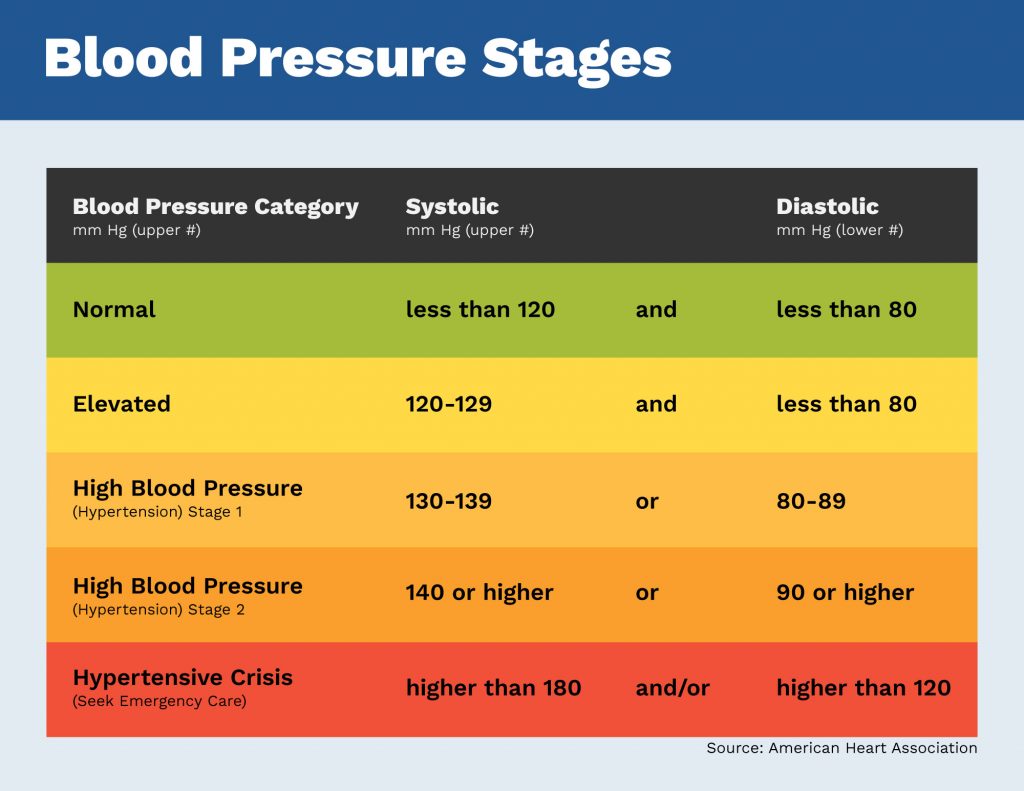Hypertension (High Blood Pressure)
Blood pressure naturally rises and falls throughout the day, but it can cause problems if it stays high for a long time. Hypertension is the medical term for high blood pressure. It is sometimes referred to as “the silent killer” because frequently people don’t even know they have it.
Common risk factors for hypertension include:
- Age
- Race
- Family history
- Being overweight or obese
- Inactivity or sedentary lifestyle
- Using tobacco
- High sodium diet
- Low potassium diet
- Consuming too much alcohol
- Stress

Signs & Symptoms
Most of the time, there are no symptoms associated with hypertension. For many, high blood pressure is found when they visit their health care provider or have it checked elsewhere.
Because there are no symptoms, people can develop heart disease and kidney problems without knowing they have high blood pressure.
Malignant hypertension is a dangerous form of very high blood pressure. Symptoms may include:
- Severe headache
- Nausea and vomiting
- Confusion
- Vision changes
- Nosebleeds
Diagnosis
Diagnosing hypertension early can help prevent heart disease, stroke, eye problems, and chronic kidney disease.
A Deborah Specialty Physician will measure a patient’s blood pressure many times before diagnosing hypertension. It is normal for blood pressure to be different based on the time of day which is why routine testing is important.
All adult patients should have their blood pressure checked at least once a year and more often if they have a history of hypertension or other risk factors.
